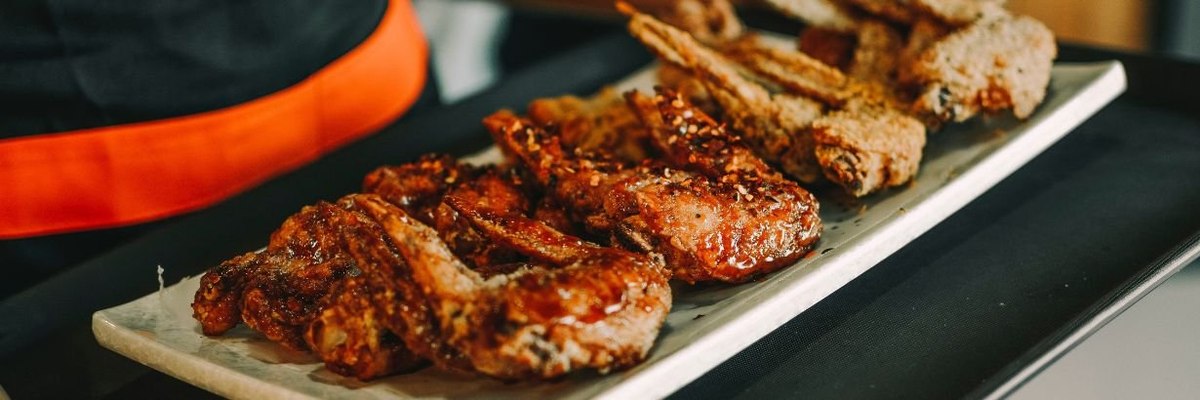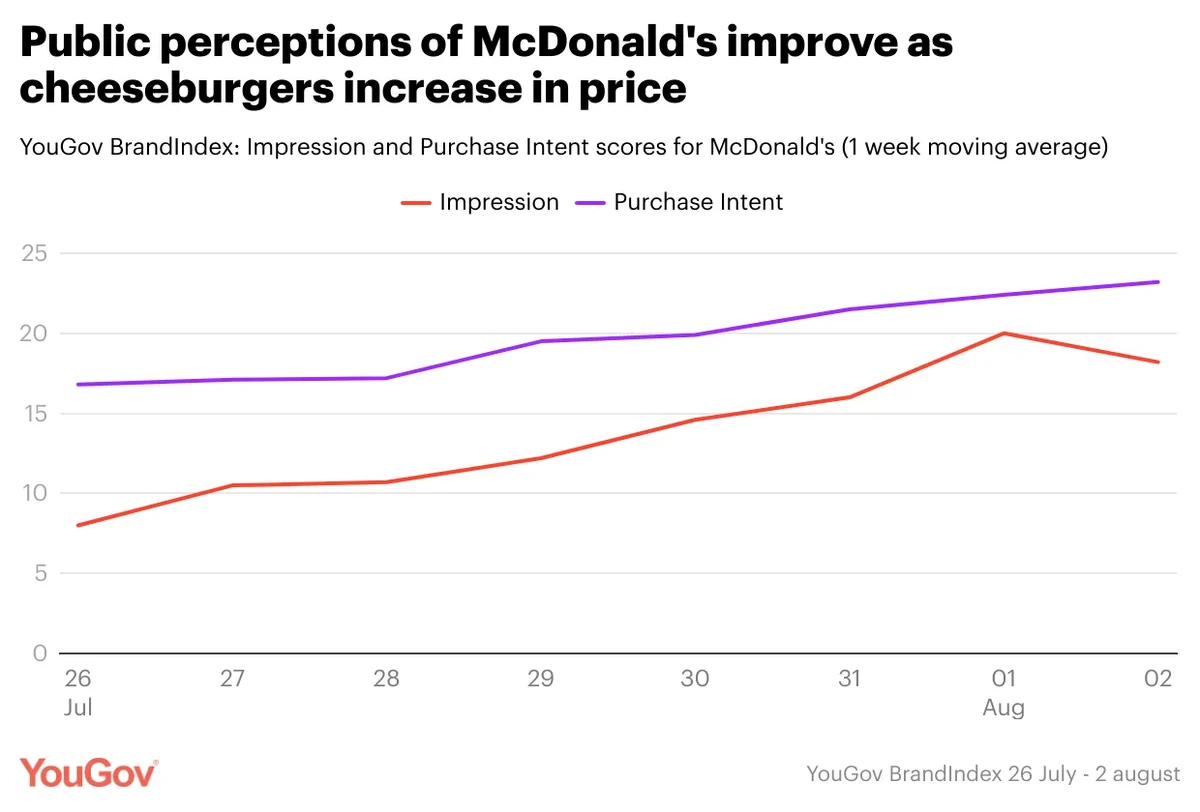
McDonald’s hikes prices – and sees consumer perceptions improve
Thanks to the cost of living crisis, the public are paying higher energy bills, and are less likely to buy clothes, go for a haircut, fill up their cars, or go to the cinema (among other things).
Against this backdrop, McDonald’s announced that the price of a single cheeseburger would rise from 99p to £1.19 due to “growing cost pressures”. Whatever the business reasons, it’s perhaps not surprising that – at a time when a tub of Lurpak is, for some consumers, an extravagance they can no longer afford – the news was widely reported by the BBC, The Guardian, Mail Online and a host of other outlets.
But amidst the negative headlines, do the public actually feel hamburgled by the price hike?

Data from YouGov BrandIndex shows that, between 26 July (the day before the increase was announced) and 2 August, Impression scores for McDonald’s – which measure overall positive and negative sentiment towards a brand – jumped from 8.0 to 18.2 (+10.2). If we look at the Value for Money metric, we can also see that public opinion of the brand actually improved from 23.1 to 28.6 (+5.5) over this period.
Has the news surrounding the (now-£1.19) cheeseburger simply reminded consumers that McDonald’s cheeseburgers are pretty cheap? It’s possible, although it could also be due to the fortuitously-timed announcement that the brand’s regular Monopoly game will be returning at some point in Autumn 2022.
Either way, other metrics have seen similar bumps. Consideration surged from 35.9 to 43.7 (+7.8), and Purchase Intent (which asks consumers which restaurant brands they’re most likely to buy from) saw a similar leap, from 16.8 to 23.2 (+6.4).
None of which is to say that consumers are loving the price hike. But whether the news has served as a helpful reminder that McDonald’s cheeseburgers are inexpensive, or whether the announcement of the Monopoly game have served as a timely distraction, they’re not necessarily grimacing either.
This article originally appeared in City AM